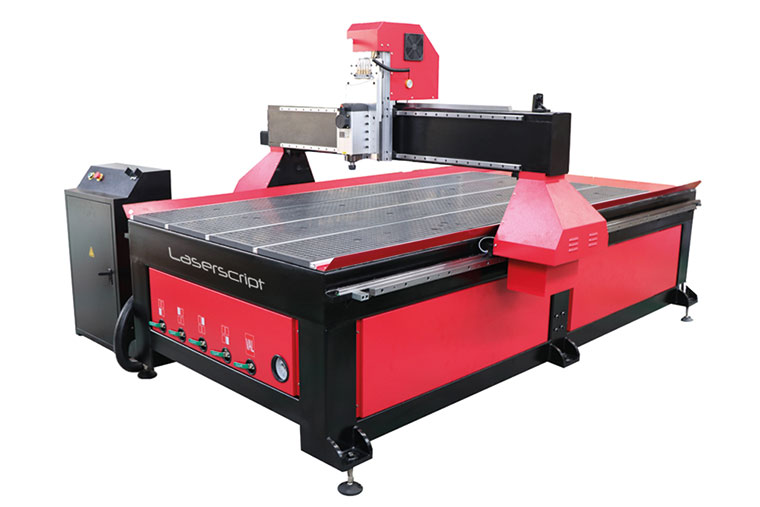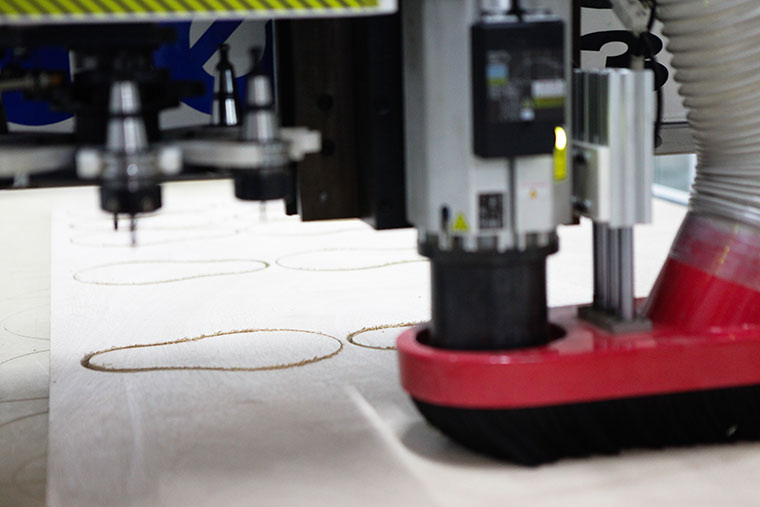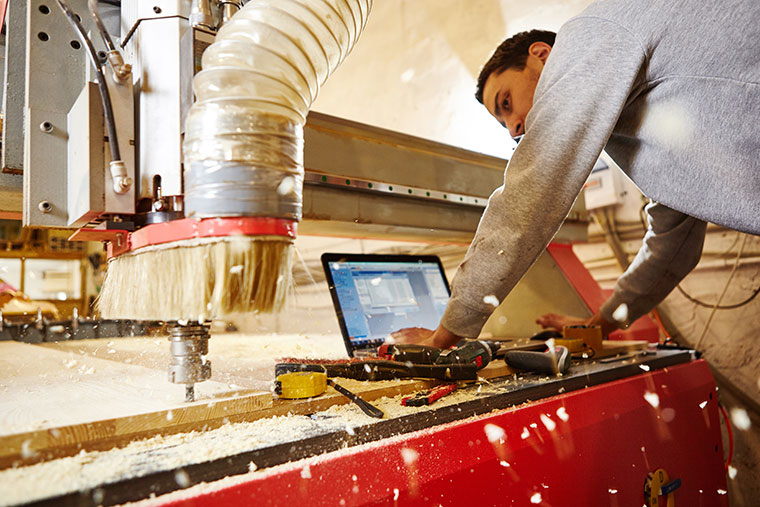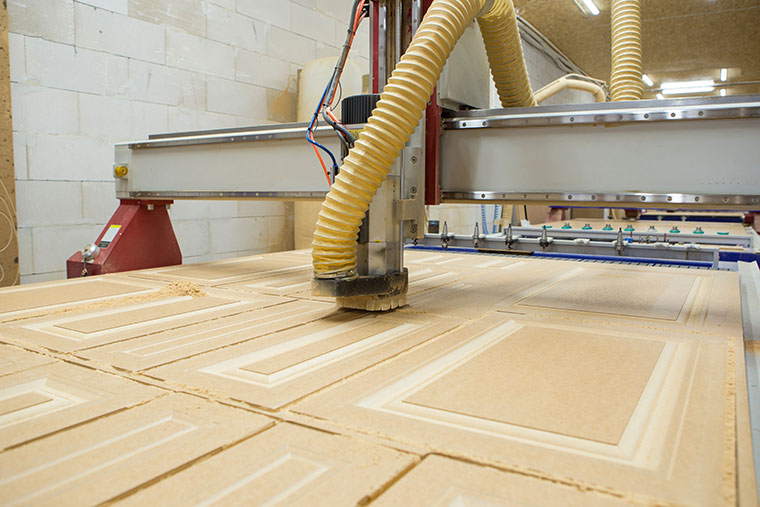HPC Laser is a leading UK supplier of laser engraving, cutting machines and CNC routers. Established in 2006 the Elland, West Yorkshire company has supplied over 5000 machines to sign-making, education, trophy engravers and a wide range of other industrial and private customers for an almost infinite array of applications.
All machines are supplied complete with on-site delivery, installation and training and covered by a minimum 12-month on-site warranty. With a team of nationwide installation and service engineers and lifetime telephone and e mail technical support, help is never far away when you need it.

“Smaller desktop routers are available from other suppliers, but these are generally intended for relatively light use,” explains HPC Laser director, Steve Cockerham, “HPC’s router range starts with a more industrial LS6090 machine with a 600mm x 900mm bed size.
“Even with a machine of this modest size, the compact arrangement is able to accommodate a 3.5kW air-cooled spindle motor which is frequency inverter driven, providing ramped acceleration and deceleration, elimination of high in-rush currents and seamless choice of operating speeds up to 18,000rpm.
“Even HPC’s entry level industrial machines such as the LS6090 are available with a wide range of upgrades including water cooled spindle motors with operating speeds up to 24,000rpm, vacuum bed and automatic tool change options.

HPC Laser’s 1325 CNC Router sports a 1300 x 2500mm vacuum bed
“CNC router technology has advanced significantly over the past few years with the most significant developments being in travel speeds and positional accuracy, automated toolchange options and enhanced features for automated operation and software integration,” says Steve.
HPC believes that one of the most practical machine developments in recent years has been the technological improvements made in spindle motor and frequency inverter technology. Prior to this technology being introduced, more traditional machines used fixed-speed mains-fed spindle motors with speed changes being offered through a variety of methods – including belts and pulleys and mechanical speed variators.
“Because mains-supplied AC electric motors are supplied via a fixed frequency 50Hz supply, they are unable to vary their operating speed – an interesting point, the no-load motor speed (RPM) is equal to 60 times the supply frequency (Hz) divided by half of the number of motor poles,” points out Steve.
“Hence a two-pole motor on 50Hz would run at 3000rpm, a four-pole motor at 1500rpm and so on…”

“Frequency inverters work by rectifying the AC electrical supply to DC and then switching this DC supply at incredible speeds to output a synthetic three phase sinusoidal supply, a process known as pulse width modulation.
“The key ability of this system is to vary the output supply frequency. This means that a two-pole motor that would usually run at 3000rpm on a 50Hz supply can now operate at 24,000rpm when driven by the frequency inverters synthetic supply at 400Hz.
“A major benefit to this technology is that the motor-frequency inverter combination offers infinitely variable speed options between 0-24,000rpm – the maximum speed usually limited only by the mechanical constraints of the motor – hence the reason why an air-cooled motor cannot operate at the higher speeds of a water-cooled motor. Usually the ventilation fan limits the maximum speed of the air-cooled motor.

“Significant CNC router developments in recent years have included the migration to heavier duty fabricated steel and cast iron beds, improving dimensional accuracy, reducing vibration and ultimately contributing to improved repeatability and in most cases a vastly superior cutting finish.”
Such recent developments in machine features together with modular designs – and the lean and flexible manufacturing systems of today – mean that customers can now purchase a cost-effective tailor made machine, configured to suit exact needs and expectations faster than ever before.
CNC router technology, especially considering the recent advances in specification, have left modern machines wanting for few, if any additional features. Indeed, it almost feels like we have reached the pinnacle of innovation in CNC router development.

“When considering one can now buy a CNC router with an almost infinite spindle speed range and a plethora of standard features and optional extras such as vacuum bed, tool-change devices, fourth axis and multiple spindle arrangements for such attractive prices, it is difficult to imagine what new developments might be next.
Steve concludes: “However, as with many products and industries, continual innovation, research and technological development will bring about new machine features that will make us wonder how we ever managed without them!”
01422 310800
www.hpclaser.co.uk









